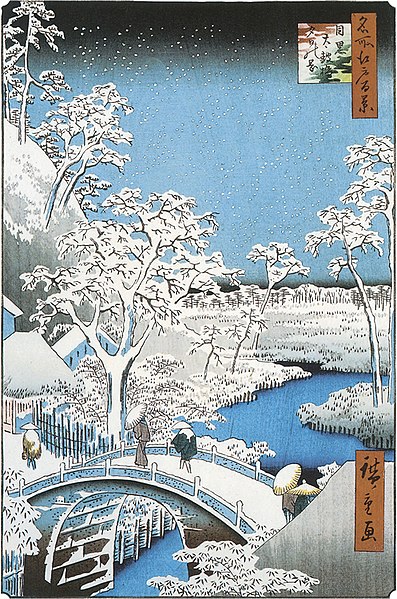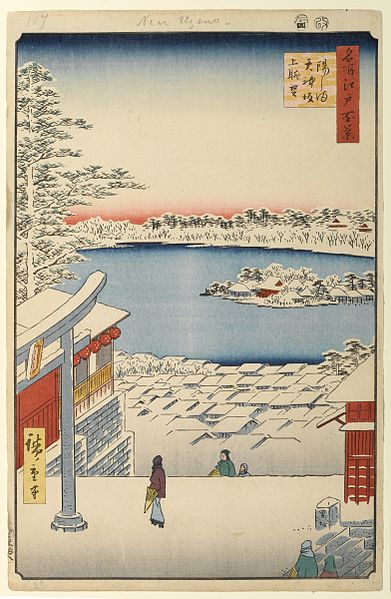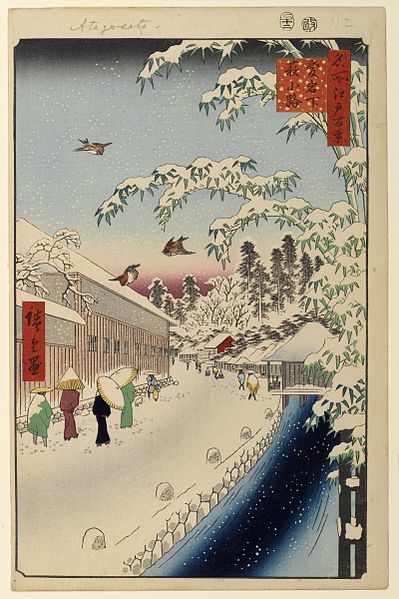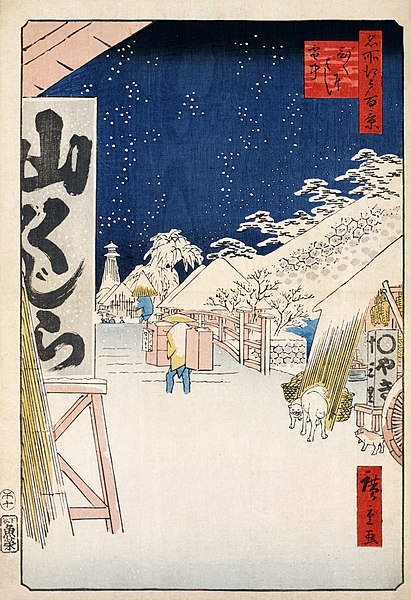
The Thammasat University Library has newly acquired a book that will be useful for all students who are thinking about studying or working in Japan. A History of Tokyo 1867-1989: from Edo to Showa: the emergence of the world’s greatest city was written by Professor Edward Seidensticker, a noted expert in Japanese literature. The TU Library owns a number of other books by Professor Seidensticker, about Japan or translated from the Japanese.
In Japan, he is perhaps most celebrated for his translation of The Tale of Genji, a work of Japanese literature written by the noblewoman and lady-in-waiting Murasaki Shikibu around one thousand years ago. Yet he also made major contributions by translating such major Japanese authors as Jun’ichirō Tanizaki and Yasunari Kawabata. Some of his translations of these and other writers are in the TU Library collection. The subtitle of Professor Seidensticker’s book suggests that Tokyo is the world’s greatest city. People who live around the world often claim that their city is the greatest. It may be more useful to remember another observation by Professor Seidensticker, that he found Tokyo to be the world’s most consistently interesting city.
Among many other quotes about Tokyo are two by the acclaimed Japanese architect Tadao Ando, who once commented:
Working in Tokyo has convinced me that, contrary to what people think, it is actually one of the world’s most beautiful cities.
Mr. Ando added:
Look at London or Paris: they’re both filthy. You don’t get that in Tokyo. The proud residents look after their city.

International Exchange
Among the many worldwide universities which have signed memoranda of understanding (MOUs) with Thammasat are several in Tokyo. These include Waseda University; Tokyo City University; Tokyo University of Foreign Studies; Tokyo Gakugei University; and Tokyo Metropolitan University. In addition, an MOU has been signed with Japan’s National Institute of Advanced Industrial Science and Technology, which has headquarters in Tokyo and other cities of Japan.
Students may wish to find more information at the TU Office of International Affairs. Residents of Bangkok should be familiar with the Waseda University Bangkok Office Branch on S Sathorn Rd, Khwaeng Yan Nawa, Khet Sathon, Krung Thep Maha Nakhon. It comprises the Waseda Japanese Language and Culture School. Waseda University is one of Japan’s oldest and most distinguished institutions of higher learning.
In Thailand, its partner institutions are Thammasat University, Chulalongkorn University, and Chiang Mai University. The Waseda University Bangkok Office Branch is intended as the University liaison office, providing admissions information and consulting for prospective students. Waseda Japanese Language and Culture School was founded just over fifteen years ago as a collaboration between Waseda University and Saha Group of Thailand, to provide quality Japanese language learning education in the Kingdom. Former students have gone on to enjoy studies at Japanese universities and also work for Japanese companies in Thailand. In 2010, Waseda Japanese Language and Culture School opened in Sriracha, Chonburi, and in 2016, a Chiang Mai branch was added.

Tokyo City University (TCU) is an engineering, environmental and information sciences focused private university located in Tokyo Japan. The university has four campuses, the Setagaya campus close to the Tama River at Oyamadai, Setagaya, Tokyo being the main campus. As Professor Chitoshi Miki, President of TCU, writes on the university website,
Universities are education and research institutions responsible for encouraging students to dream and to develop the abilities to fulfill those dreams. The scale of educational effects should be how well the students have improved their abilities between entering the school and graduating. From such a viewpoint, we intend to be recognized as the best value university.
Tokyo City University is promoting the development of human resources with the practical ability to play active roles in the world…. If you hope to be an international person, Tokyo City University is the perfect place.
The university is located in an extremely good environment very close to the center of Tokyo, a cosmopolitan city. Let’s visualize your dreams and make them come true on this campus. Let our dreams grow wings, think globally, and act locally!
Among recent exchanges, last year a group from Sirindhorn International Institute of Technology (SIIT), a semi-autonomous institute of technology established in 1992 within Thammasat University, located in Pathum Thani, experienced the 10-day Sakura Exchange Program in Science with TCU.
Started by the Japan Science and Technology Agency (JST) in 2014, the Japan-Asia Youth Exchange Program in Science (SAKURA Exchange Program in Science or SSP) invites outstanding students from Asian nations to Japan to allow them to discover Japan’s state-of-the-art science and technology and participate in exchanges with Japanese universities and research institutions. Future scientific leaders in Asia have a chance to see developments in Japan. Up to 2017, the program invited about 19,000 students to Japan from 35 countries and regions, including China, India, and ASEAN member states.
Tokyo University of Foreign Studies (TUFS) is a specialist research university in Fuchū, Tokyo, Japan, primarily devoted to foreign language, international affairs and foreign studies. It also features an Asia-African institution. As its website explains,
The mission of Tokyo University of Foreign Studies shall be to conduct research and instruction, both theoretical and practical, on the world’s languages and the cultures rooted in them, to provide the cultural refinement necessary to engage in international activities, and to deepen the understanding of regions around the world through the study of their languages.
In Thailand, TUFS’s partner institutions include Thammasat University, Srinakharinwirot University, Chulalongkorn University, Chiang Mai University, and the Research Institute for Languages and Cultures of Asia, Mahidol University. TUFS’s President, Professor Kayoko Hayashi, notes on the university website,
As a leading institution in the education and research of languages, cultures and societies of the world, the Tokyo University of Foreign Studies takes a serious interest in safeguarding and enhancing the richness and potential of human diversity. We have been making persistent efforts to deepen our understanding of the languages, cultures and societies that comprise this human diversity and also to train professionals who can serve as mediators between people with different backgrounds. As the world becomes smaller and the interaction among different parts of the world intensifies, there is a rapidly increasing need for accurate and deep understanding of cultural differences and for those with the ability to mediate interaction among different people. This need reinforces the highly valuable expertise that TUFS provides in the study of linguistic and cultural diversity. It is our hope, not only to contribute to mediating and coordinating functions, but to take on a leading role in creating positive power derived from human diversity to lead the world into a brighter future. There are many “differences” in the world, including differences of language, culture, ethnicity, religion, gender, age, and wealth. In order to overcome all these disparities, it is essential to increase mutual awareness, to deepen understanding of the sources and mechanisms for the differences, and to foster mutual respect. This may not be an easy path, but I believe that we can accomplish this and generate productive energy from this very diversity we have among people in the world…

(All images courtesy of Wikimedia Commons)
